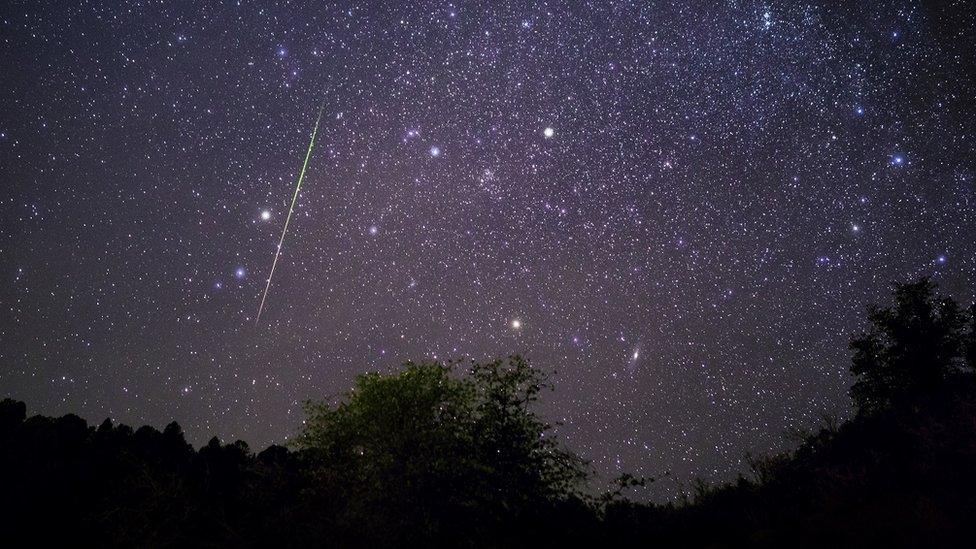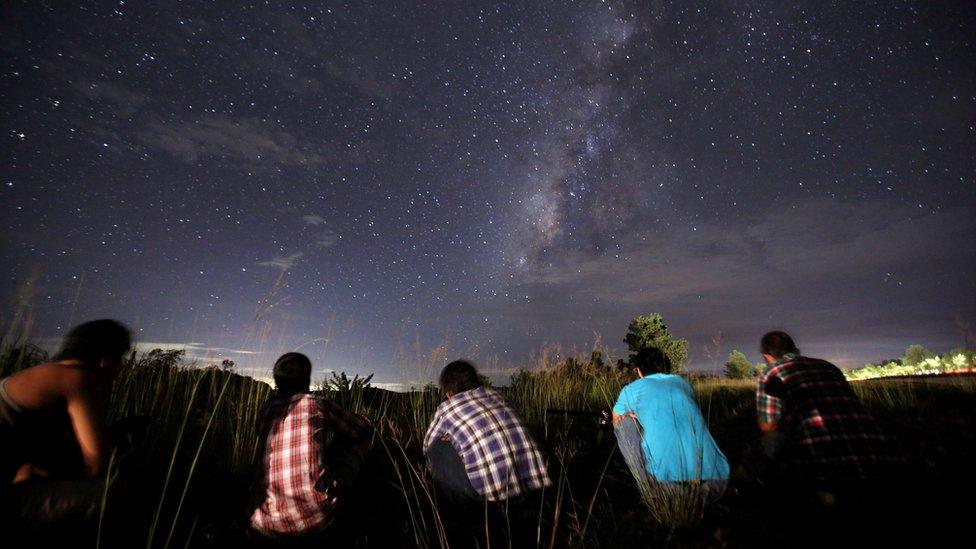Leonid meteor shower: When, where and how to catch a glimpse of the shooting stars
- Published

The Leonids can be seen at the same time each year in mid-November
The Leonids - one of the most prolific annual meteor showers - will be streaking across the heavens in the early hours of Sunday.
Skygazers in Wales and in England's Midlands and south should get a glimpse through intermittent clear skies.
Characterised by fast, bright meteors, the Leonids will end their two-day peak on Sunday between midnight and dawn.
They can be seen with the naked eye, though check the weather where you are as it will affect visibility.
According to the Met Office's cloud cover map, external, visibility will pose a challenge to shooting star-gazers in Scotland and Ireland but parts of Wales, southern England and the Midlands should have clear skies for some of the night.
The Leonids are so-called because they appear to originate from the constellation Leo.
The shower is associated with Comet Tempel-Tuttle, which leaves a path of tiny debris - some of it as small as a grain of sand - as it follows its path around the Sun.
When this celestial debris enters our planet's atmosphere at speeds of up to 43 miles (70km) per second, it vaporises and creates the spectacular streaks of light known as meteors.
"They can be very bright because they're moving very quickly, so they may look slightly more green or slightly more blue," said Dr Affelia Wibisono, an astronomer at the Royal Observatory Greenwich.
"Sometimes we get fireballs as well during the Leonids and they can outshine a star or a planet."
How can I watch the Leonid meteor shower?
While you'll need clear skies to see them, the meteors will be visible across much of the northern hemisphere.
Try to find a dark spot away from city lights, preferably with a wide open vista unblocked by buildings.
"It should be something quite fun to view and something really worth going outside and having to look for," said Dr Wibisono. "I think the great thing about meteor showers is that they are easy to see, you don't need equipment, all you need to do is look up."
The Royal Observatory Greenwich advises that as with all astronomy, meteor-hunting is a waiting game, so bring a comfy chair and wrap up warm as you could be outside for a while.
Don't worry if you don't manage to see them over the weekend. Although this is when they're at their best, they can be spotted until 30 November.

Have you caught a glimpse of the Leonid meteor shower? Share your pictures and videos by emailing haveyoursay@bbc.co.uk, external.
Please include a contact number if you are willing to speak to a BBC journalist. You can also get in touch in the following ways:
WhatsApp: +44 7756 165803
Tweet: @BBC_HaveYourSay, external
Please read our terms & conditions and privacy policy
If you are reading this page and can't see the form you will need to visit the mobile version of the BBC website to submit your question or comment or you can email us at HaveYourSay@bbc.co.uk, external. Please include your name, age and location with any submission.
Related topics
- Published15 November 2024
